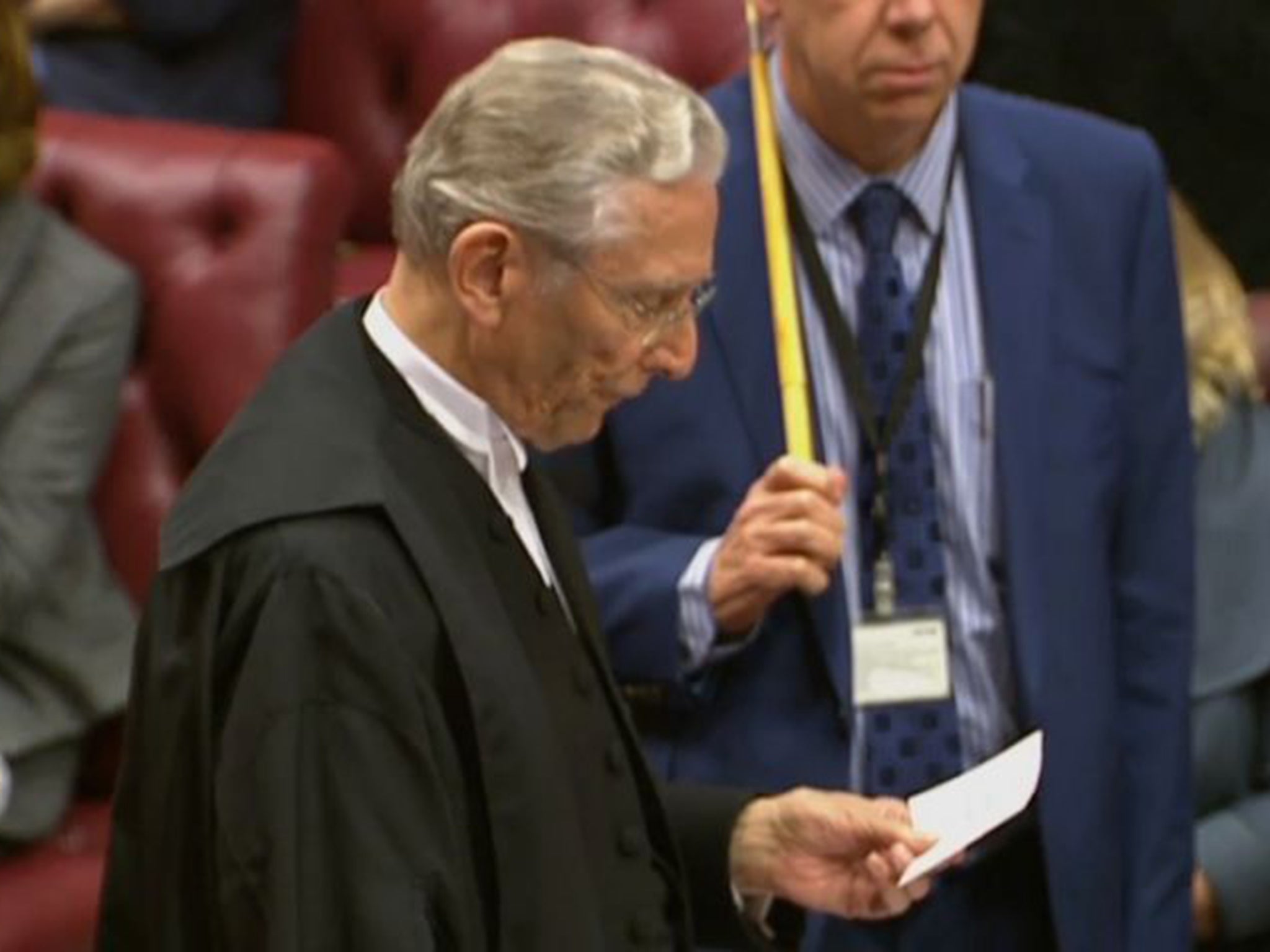I fully endorse the House of Lords blocking the Brexit bill – but I wish it hadn't been them who had done it
The intervention of the unelected chamber may be undemocratic. But it as things stand, it is a perfectly legal and constitutional action in the flawed democracy that operates in the United Kingdom


“Hooray for the House of Lords,” a progressive-minded friend of mine posted on social media as peers inflicted a bruising defeat on the Government’s “Brexit bill” this week.
Their delight was understandable. Peers have decided to do something that MPs failed to do. They have struck a blow for the decency we like to claim is part of our national character by sending a bill back to the House of Commons, having amended it in an attempt to protect the rights of EU nationals living here.
I fully endorse what peers have done. I just wish it hadn’t taken them to do it.
As the snarling brigade of Brexit-backing tabloids were quick to remind us, peers are unelected. They own their positions to patronage. It’s all enemies of the people (again).
I’d be more inclined to take their criticism seriously had they, their commentators, or their Conservative Brexiteer friends made meaningful and constructive contributions to the debates over House of Lords reform that have more or less died a death.
The intervention of the unelected chamber may be undemocratic. But it as things stand, it is a perfectly legal and constitutional action in the flawed democracy that operates in the United Kingdom.
Which explains the reason I’m reluctant to celebrate in the way my friend was. To me, the very existence of the House of Lords is an absurdity in the 21st century.
Its defenders argue that it sort of works, like lots of things sort of work in the eccentric – or, let’s be honest, the slightly daft – way we have of doing things here.
They point to incidences where peers have saved the Government from making some bad mistakes. If you’ve a lifelong ticket, you’re a slave only to your own conscience and not to any party whip. That can come in handy when ministers whip MPs into backing silly things.
However, that doesn’t change the fact that it is fundamentally undemocratic. And the only reason that it is still with us is because Parliament has failed to come up with a way to reform it that achieves widespread support and at the same time overcomes the reluctance of governments to entertain the idea of something that might provide a better brake on their worst instincts.
There has been a bit of tinkering around the edges. Those who owe their position to an accident of birth have been eased out. But that’s about it.
“There’s no real demand for it, see,” is what opponents of reform argue. And it’s not as if the unelected chamber has any real clout. It can raise issues, amend and, at worst, delay bad bills. But the Commons has the Parliament Act. So it can only go so far.
As a result, it rolls on and no one makes too much of a fuss about it, until a time like this when it looks like the Lords might temporarily frustrate something important to them. Then the cries of “unelected peers” become deafening and they get accused for trying to frustrate democracy.
As if what’s going on right now is at all democratic anyway.
I’m generally reluctant to entertain allusions to the Nazi Party. They’re overused, lazy and cheap. A particularly bad example was Boris Johnson’s sly comparison of the EU’s alleged desire to create a super-state to that of Adolf Hitler and his friends.
But BoJo is a clever chap, and he opened the door. So, in that spirit, he surely won’t complain if I suggest that the Government’s use of the result resembles Hitler’s use of a referendum to withdraw Germany from the League of Nations.
Its Article 50 bill, meanwhile, is unpleasantly reminiscent of the Enabling Act of 1933 because the Government is acting as if it gives it a blank cheque.
As for ministers’ use of the Brexit vote, so narrowly won, to club aside any and all opposition to its plan for a hard Brexit? Well, I don’t need to spell it out any further.
But it shouldn’t have escaped your attention that outriders such as Nigel Farage have alluded to the possibility of chaos on the streets if they don’t get their way, judges have been subject to threats and intimidation, death threats have been flying around with wild abandon. When Home Secretary Amber Rudd mooted a plan for registries of foreign workers, it felt like Britain had abandoned its principles entirely.
In the midst of all this, along comes an undemocratic, sometimes out-of-touch, certainly out-of-date institution that should have been consigned to the history books long ago to strike a blow for decency by demanding that immigrants to these shores from countries that were our friends and allies, and which should still be, must not be used as bargaining chips in a nasty game.
Amid a tide of ugliness and bile, the House of Lords has become the champion of something better.
I’m glad that it is doing so, because the treatment of EU nationals on these shores fills me with a profound sense of shame and embarrassment. The latter is only heightened by the fact that it has been left to the House of Lords to do so. How the hell did we allow this to happen?
Join our commenting forum
Join thought-provoking conversations, follow other Independent readers and see their replies
Comments